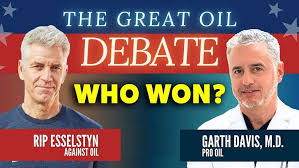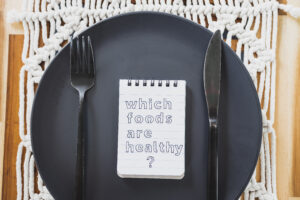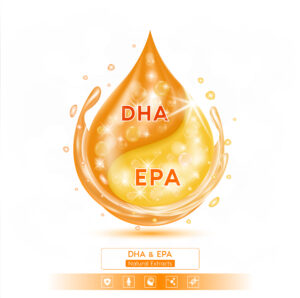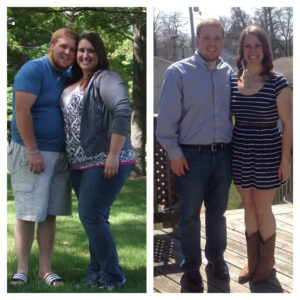A New Study Shows
I saw an interesting blurb on social media which reads: “A new study shows we can get you to believe anything as long as we say "A New Study Shows” before whatever we say.
That would be comical if it weren’t so terribly true. I’ve overheard or taken part in many conversations where friends are reporting of the latest nutrition ‘fact’ they’ve heard or read about. Often times the latest report contradicts what was just reported a few months ago.
One day saturated fat is evil, and the next day it’s being promoted as inconsequential. Coffee is bad one day and good the next. Protein intake should be high vs protein intake should be kept low. Grains are responsible for every health ailment vs grains are good for us. What’s a person to believe?
We're So Confused
It’s no wonder that people are nutritionally confused. Because we live in an information age, the continual confusion can cause people to throw in the towel and decide to just eat whatever they want. It’s important to be discerning in this area, especially if you are basing your health decisions on things that you hear or read.
In the meantime, here are a few tips to help you filter any diet and health information you may read or hear:
- Start with the assumption that, until proven otherwise, everything you hear or read is probably not correct. This is especially true if you’re dealing with stories, observations, and advertisements. During one of my classes, a participant brought in a “scientific article” to show the benefits of consuming vegetable oil. The small print at the bottom of the article revealed the content was sponsored by Wesson. What she had brought in was a full-page advertisement wrought with marketing messages. Another area of concern is the misreporting of study results by the media to attract attention. I have a file folder labeled “sensationalized headlines” with articles and news reports proven to be outlandishly misleading. This brings us to tip number two:
- Who is making the claim or funding the study? Drug and supplement manufacturers, the meat, dairy, and sugar industries, junk/ processed food companies, and agricultural groups all sponsor research—which inherently comes with a big conflict of interest. First rule of thumb with research: Look for independently funded studies conducted apart from industry or groups who stand to profit. Follow the money.
- Look in the right places. Blogs, author websites, Wikipedia, national disease groups, and the government are not the best sources of diet and health information. Even the opinions of well-meaning healthcare professionals should not be fully relied upon to reach accurate conclusions about diet and health since most healthcare professionals are not trained in nutrition.[i] According to Dr. Pam Popper of Wellness Forum Health, the best sources of health information are medical and scientific journals as well as independent researchers who document their findings with valid science.
- Don’t be convinced by just one study. A study can be found to support any possible position. The preponderance of evidence is what matters; in other words, it’s important to look at the greater weight of evidence supported by many credible sources. For example, if nineteen studies show coffee creamer is a healthy food, but 220 studies show the opposite, rely on the greater weight of evidence. Avoid the creamer.
- Is the study well designed? Was it a long-term study involving a great number of people? What were the long-term results, and were there any side effects reported? What were the exact details of the study? For instance, if a study claims that a “low-fat” diet was used to make comparisons, what actual percentage of fat was in the diet they used? (You’d be surprised at what some studies consider to be low fat— most of them aren’t.)
- Did the researchers report the results in “absolute terms” or “relative terms”? By reporting the results of a study in relative terms, researchers can make a product appear far more beneficial than if the results had been reported in absolute terms. Here’s an example: Suppose the risk for a heart attack in patients given a placebo pill is two people in one hundred (2 percent), and the risk in patients given a new drug is one person in one hundred (1 percent). In absolute terms, the difference is determined by subtracting the two risks (2 percent – 1 percent = 1 percent difference). If the results are expressed in relative terms, however, the difference is determined by the ratio of the two risks (1 percent ÷ 2 percent = 50 percent). Expressed in relative terms, it appears the new drug reduces the risk of a heart attack by 50 percent; but the reality of absolute terms reveals the new drug only offers a 1 percent benefit. Remember to investigate the risks of serious side effects as well, to determine if a meager 1 percent benefit would be worth it!
- Read the original study. Someone else’s report of the original study may include their own personal opinions or possible slants toward their own agenda or may purposely omit pertinent information. If you don’t have time to read the full study, you can always read the abstract (summary) of the study online. You can also find the effectiveness rates and side effects of drugs on the drug companies’ websites; but use caution—they often report their findings in relative terms rather than absolute terms (see tip #6).
YOU are your #1 health care practitioner; please base your food choices and health decisions on independent and credible evidence-based research. Fortunately, there ARE a few trustworthy sources of information out there. Dr. Pam Popper of Wellness Forum Health is one of them, and she also offers classes to teach how you can do your own research.
Contact me at [email protected] if you need further help.
[i] Dr. Michael Greger, “How Much Nutrition Education Do Doctors Get?” Accessed August 6, 2017. https://nutritionfacts.org/2017/06/08/how-much-nutrition-education-do-doctors-get/. Dated June 8, 2017.








